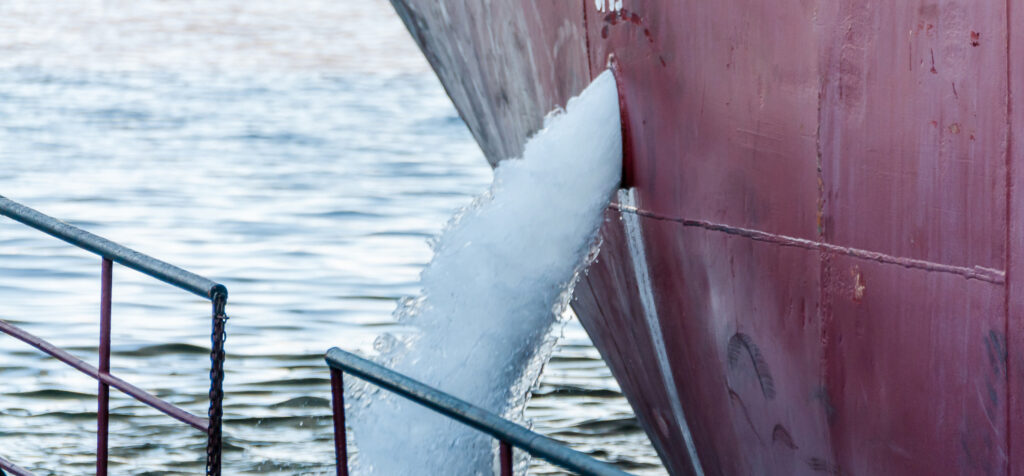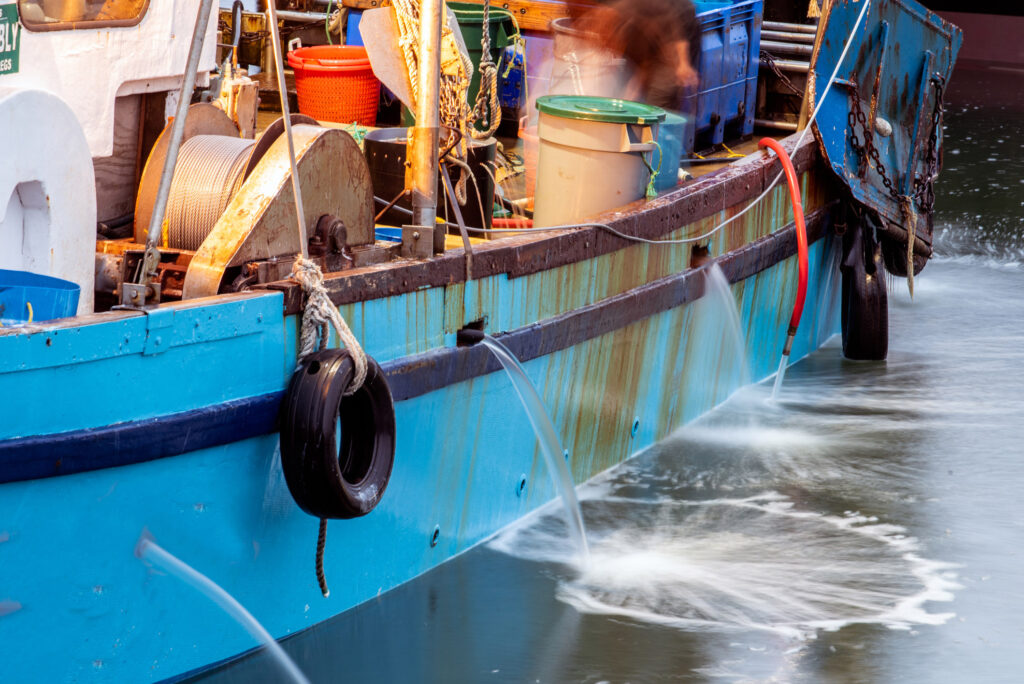Ships must now maintain a ballast water record book
By Deniece M. Aiken *
Despite the ultimate and expectant benefits from the BWM Convention, it is evident that the said convention imparts duties and responsibilities on Caribbean states which may prove difficult to execute, particularly in the immediate future.
2017, November 1: Protection of the marine environment continues to be a priority mandate of the global maritime community, and with approximately 90% of world trade being facilitated by more than 50,000 merchant ships, the potential environmental and social risks are grave. It is therefore evident that solid and strategic measures to counter such risks are required.
A key element in ship safety is stability and control of the vessel. Stability is achieved usually by adding weight to the bottom of the vessel. This weight could be rocks or sea water, and in maritime terminology, is referred to as ballast.

Ballast water often contains non-native species that can cause extensive ecological and economic damage to local aquatic ecosystems. It is reported that approximately 10-12 billion tonnes of ballast water are drained into harbours around the world every year. And, as reported, about 4,500 species of marine organisms, including plants; animals and bacteria, are being transported aboard ships every day. This has created grave problems in coastal states where the economy and society rely heavily on fisheries.
The Caribbean region is one such region. It comprises of small island-states that are strongly supported by fisheries and the marine environment and accommodates a heavy volume of marine traffic which is expected to increase with the expansion of existing canals, and the introduction of new shipping lanes, marine routes and pathways in the neighbouring environs. As such, these countries are considered ‘high risk’ as ballast water is constantly being transported into the Caribbean Sea. This reality exposes the marine environment, economic sectors and human health to potential harm.
Guidelines for prevention
In an effort to address the issues and threats related to this common practice in shipping, the Marine Environment Protection Committee (MEPC) of the International Maritime Organization (IMO) adopted in 1991 the Guidelines for Preventing the Introduction of Unwanted Organisms and Pathogens from Ships’ Ballast Waters and Sediment Discharges and, in 1992, the United Nations Conference on Environment and Development requested that the IMO adopt appropriate legally binding rules on ballast water discharges aimed at preventing the spread of non-indigenous organisms. The result is the International Convention for the Control and Management of Ships Ballast and Sediments (a.k.a. BWM Convention) 2004, which became effective on September 8, 2017.
The convention applies to all ships in international traffic and, among other things, outlines ship design and operational requirements regarding ballast water management for vessels. Ships are now required to manage their ballast water and sediments to certain standards, according to a ship-specific ballast water management plan that is approved by the state in which the ship is registered (i.e. the flag state). Ships must now therefore maintain a ballast water record book in which to document ballast exchanges, treatment and circulation and any other related operations, as required.
Port state responsibilities
In addition to the requirements and standards placed on vessel operations, the BWM Convention also imparts responsibilities on port states. These responsibilities support the role of the IMO and national regulatory bodies in ensuring that ships are compliant with the provisions of the convention.

The port state is required to carry out a four-stage inspection procedure, consisting of:
- an initial inspection focussed on documentation and enforcement of a proper structure in the ballast water management procedure;
- a more detailed inspection, in which the operations are observed and checked alongside the ballast water management plan for the vessel;
- sampling of the ballast water, to ensure that the vessel meets the required performance standards; and, with the standards within the convention. Additionally, since September last, port states now carry the additional role of ensuring that following the inspection, the master of the vessel is provided with a report outlining the results of the inspection.
BWM Convention and the Caribbean
The vulnerabilities of the Caribbean region were acknowledged by the international maritime community. In 2008, the Caribbean was designated one of the top priority regions during the second phase of the 5-year (2008-2012) GloBallast Project. [a joint programme between the Global Environment Facility (GEF), the United Nations Development Programme (UNDP) and IMO.]
Despite the ultimate and expectant benefits from the BWM Convention, it is evident that this convention places duties and responsibilities on Caribbean states which may prove difficult to execute, particularly in the immediate future.
These include the provisions for discharge facilities for ships, ship reception facilities, timely and sufficient inspections and, ballast water sampling and testing.
The four-stage port state procedure also requires careful thought and organization so as to avoid resultant delays and other issues that may arise. And, an extensive and tailored training programme is required to build capacity within these areas to fully support the objectives of the convention.
It is clear; there is work to be done and the time is now.
The requirements of the newly effective convention may prove difficult to attain for some states. However, a fair balance between the interests of the sector and the current situations faced by states, particularly developing states with very limited resources must be achieved.
Due to their inherent vulnerability, it is important that Caribbean states take all necessary precautions to ensure they are protecting their marine environment, which, by extension, results in the protection of their economies, their sustainability and the livelihood of their population. []

* Deniece M. Aiken, BSc, LLB, MSc is Vice President, Legal & International Affairs at the Caribbean Maritime University.





